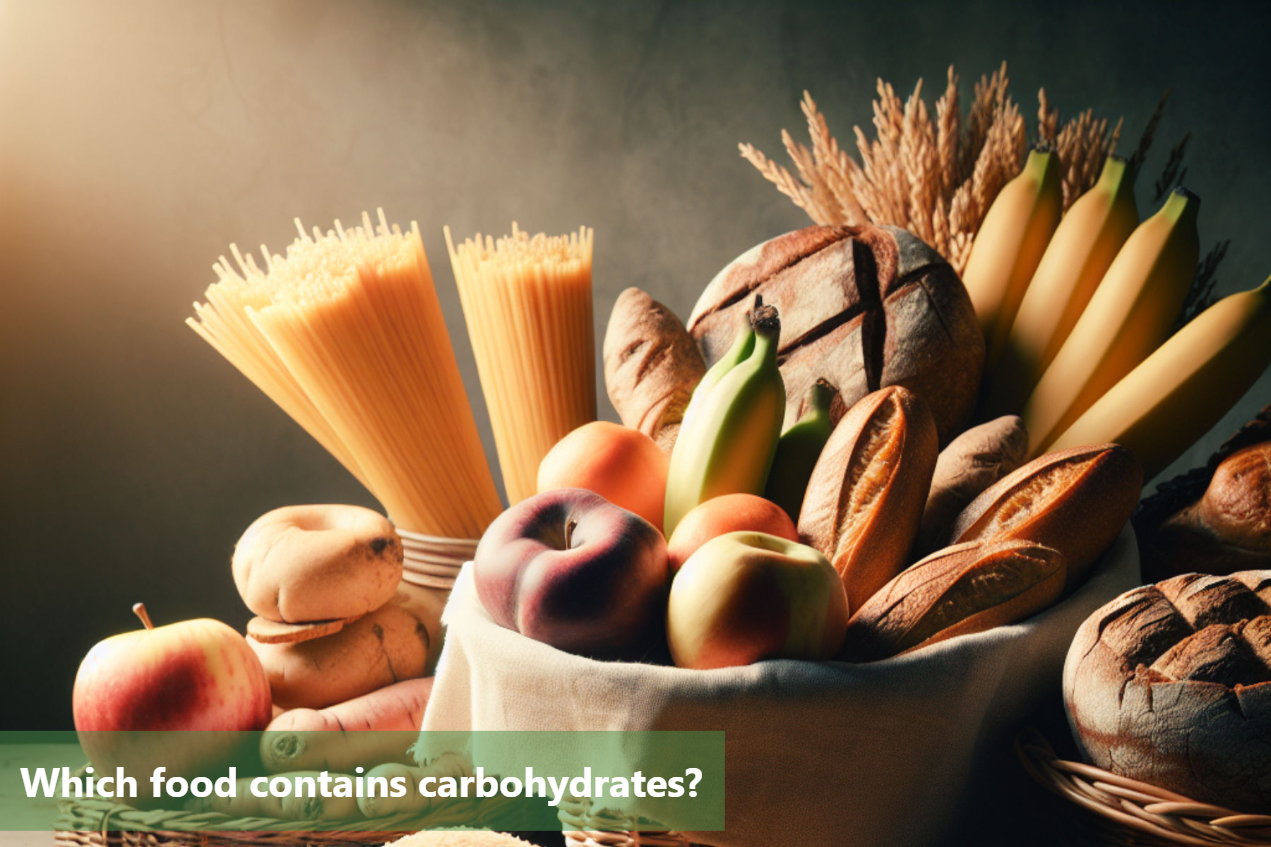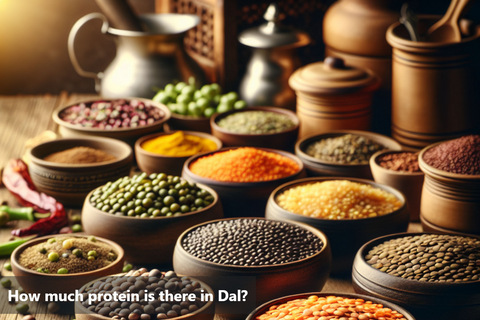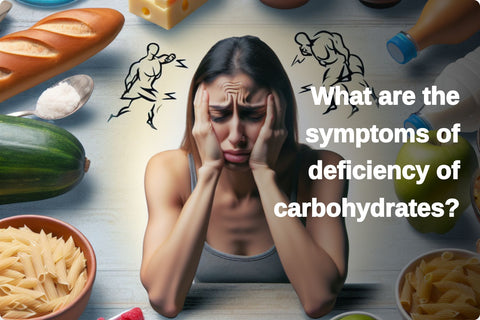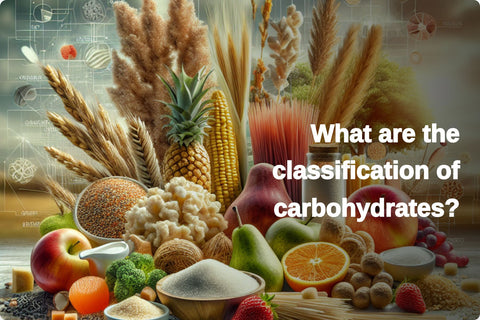
Which food contains carbohydrates?
Carbohydrates are one of the essential macronutrients found in food. They are sugars, starches, and fibres that provide a crucial energy source for the body. Carbohydrates, found in foods like bread, pasta, rice, fruits, and vegetables, are an essential source of energy for our body. They break down into glucose, which our body uses for fuel.
Understanding the different types of carbohydrates is key to making informed dietary choices. There are simple carbohydrates like sugars and complex carbohydrates like starches, each serving a different purpose in our bodies. By incorporating a variety of carbohydrates into our diets, we can ensure that we are fueling our bodies with the nutrients they need to function optimally.

Carbohydrate-Rich Foods
Carbs are essential for providing our bodies with energy. Here are some healthy and delicious options to consider:
Fruits: Bananas, apples, oranges - A naturally sweet way to get carbs, vitamins, and minerals. (contains approximately 10-20 g per 100gm)
Vegetables: Sweet potatoes, carrots, peas - Nutrient-rich and packed with fiber to keep you feeling full. (contains approximately 1-15 g per 100gm)
Grains: Whole-wheat products, oats, rice - Staple carbs offering fibre and other beneficial nutrients. Choose whole grains whenever possible. (contains approximately 40-50 g per 100gm)
Legumes: Lentils, chickpeas, black beans - A double win of carbs and protein, making them versatile additions to many dishes. (varies a lot even contains as low as 10g and can contain as high as 60g per 100 gm)
Including these carbohydrate-rich foods in your diet will help you maintain stable energy levels and promote overall well-being.
Carbohydrates in Processed Foods
Regarding processed foods, it's essential to be aware of the hidden sources of carbohydrates lurking within. Often, these additions come in the form of added sugars and refined grains, which can significantly impact the overall carbohydrate content of the food.
Added sugars are commonly found in processed snacks, beverages, and savouryitems like sauces and dressings. These sugars not only elevate carbohydrate levels but also contribute to unnecessary calorie intake. Checking the ingredient list for terms like sucrose, high fructose corn syrup, or maltose can help identify these sneaky additions.
Refined grains are another culprit when it comes to hidden carbohydrates. Foods like white bread, white rice, and many bowls of cereal go through processing that removes beneficial fibre and nutrients while concentrating the carbohydrate content. Opting for whole-grain alternatives can mitigate this issue while providing more nutritional value.
Being mindful of these hidden sources of carbohydrates in processed foods is key to maintaining a balanced diet. Reading labels, choosing whole food options, and limiting heavily processed items intake can help achieve a healthier carbohydrate intake.
Balancing Carbohydrates in a Healthy Diet
Carbs are essential, but choosing the right ones matters! Here's how to incorporate them healthily:
Go Whole Grain: Opt for brown rice, quinoa, or whole wheat bread over refined grains like white bread or white rice. Whole grains offer more fibre and nutrients.
Mind Your Portions: Don't overdo it! Carbs are great, but excess can lead to weight gain. Listen to your body's hunger cues and eat until comfortably full.
Fruits & Veggies: Include plenty of fruits and vegetables for a delightful mix of carbs, vitamins, and minerals. They're delicious, versatile, and naturally nutritious.
Balance is Key: Remember, moderation and variety are crucial! Choose the right carbs and control portion sizes for a well-rounded, healthy diet that fuels your well-being.
Good v/s Bad Carbohydrates
Carbohydrates are an essential macronutrient that can be found in a wide variety of food sources. It's important to distinguish between good and bad carbohydrates based on their nutritional value and impact on health.
Optimal Carbohydrates:
Whole Grains: Foods like quinoa, brown rice, oats, and whole wheat pasta provide complex carbohydrates, fibre, and essential nutrients.
Fruits and Vegetables: Colourful fruits and non-starchy vegetables are rich in vitamins, minerals, and healthy carbohydrates.
Legumes: Beans, lentils, and chickpeas offer a mix of carbohydrates and protein, making them a nutritious choice.
Sweet Potatoes: These root vegetables are a great source of complex carbohydrates and fibre.
Negative Carbohydrates:
Added Sugars: Processed foods, sugary beverages, candies, and desserts often contain high amounts of simple carbohydrates with little nutritional value.
Refined Grains: White bread, pastries, and sugary cereals are examples of refined grains that are low in fibre and nutrients.
When choosing carbohydrates, opt for whole, unprocessed foods like fruits, vegetables, whole grains, and legumes to ensure optimal nutrition. Be mindful of added sugars and refined grains contributing to health issues like weight gain and blood sugar imbalances.

Bottom Line
Carbs are essential for a balanced diet, providing energy for our bodies to function. Here's a breakdown of how to incorporate them wisely:
Importance: Carbs are our primary energy source, crucial for overall health and vitality.
-
Variety is Key: Choose from a wide range of carbohydrate sources:
Fruits (bananas, apples, berries) for natural sugars and fibre.
Vegetables (sweet potatoes, broccoli, carrots) for vitamins, minerals, and carbs.
Whole Grains (quinoa, brown rice, oats) for complex carbs and sustained energy.
Prioritize Whole Foods: Opt for whole, unprocessed options to maximise nutrient intake.
Balance is Key: Maintain healthy portion sizes and balance carbs with protein and healthy fats for a complete diet.
Be Mindful: By understanding the variety of carb-rich foods and making informed choices, you can optimise your diet for well-being and energy.
This Blog post is an initiative by Lo! Foods, to provide accurate and Nutritionist / Doctor approved information related to Health. Lo! Foods is India's leading brand for Everyday Functional Foods. Foods designed for specific Health conditions or Needs. Lo! Foods also runs India's largest range of Low Carb Healthy Cloud Kitchens, under the brand names of Lo!, ProteinChef, ATH (All Things Healthy) and DiabeSmart.













Leave a comment
Your email address will not be published.